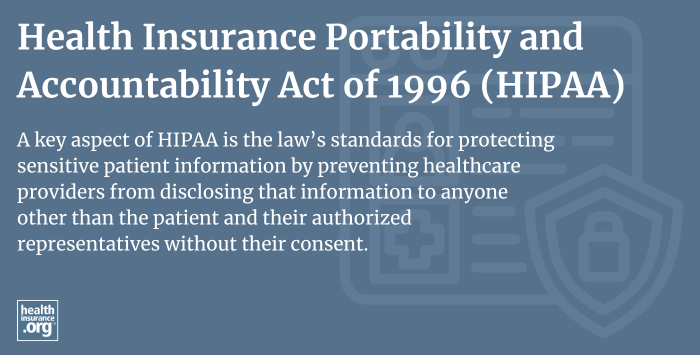
What is the Health Insurance Portability and Accountability Act of 1996?
The Health Insurance Portability and Accountability Act of 1996 (HIPAA) is a wide-ranging piece of legislation. Among other things, HIPAA:1
- Protects a person's ability to enroll in employer-sponsored health insurance on a guaranteed-issue basis, regardless of pre-existing conditions, as long as the person had prior continuous coverage (the Affordable Care Act greatly expanded on this, and made coverage in the individual market guaranteed issue as well).
- Protects patients' private personal health information; the HIPAA Privacy Rule was issued by HHS to implement these provisions.2 HIPAA created the authority to mandate the use of standards for the electronic exchange of health care data; to specify what medical and administrative code sets should be used within those standards; to require the use of national identification systems for health care patients, providers, payers (or plans), and employers (or sponsors); and to specify the types of measures required to protect the security and privacy of personally identifiable health care.
- Implemented various tax changes related to health care. These included increasing the percentage of premiums that self-employed people could deduct (subsequent legislation increased this to 100% starting in 2003), and the creation of medical savings accounts (these have since been replaced by health savings accounts).
Footnotes
- "What Is HIPAA?" Verywell Health. Aug. 5, 2023 ⤶
- "Summary of the HIPAA Privacy Rule" U.S. Department of Health & Human Services. Accessed Oct. 9, 2024 ⤶
